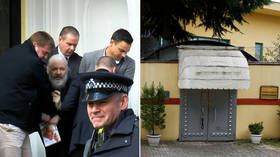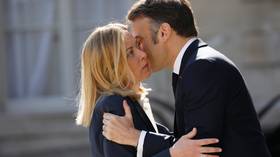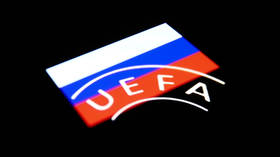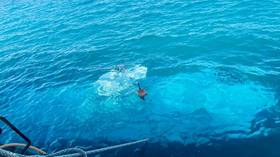American values: Embassies are for chopping up journalists, not protecting them

Fair-minded people across the world have rightly condemned the US-ordered arrest of Julian Assange. However, few have noted how it fits part of a pattern of American hypocrisy when it comes to the treatment of journalists.
Only six months ago, Jamal Khashoggi was murdered and hacked to pieces by Saudi agents at the kingdom’s consulate in Istanbul. He was a columnist at the Washington Post and editor-in-chief of the Al-Arab News Channel, known for his sharp criticism of the illegal US-backed Saudi war on Yemen.
Despite a CIA conclusion that Crown Prince Mohammed bin Salman ordered the gruesome assassination, President Donald Trump stood by his ally and no meaningful sanctions or penalties were directed towards Riyadh.
Turkey itself remains a NATO member, and close US partner, despite holding more journalists behind bars than any other nation on earth. This figure stood at 68, at the end of last year, around one-quarter of the global total of 251.
Now we have the indictment of Assange, which seeks to criminalize basic functions of journalism. For instance, keeping sources anonymous or deleting records of conversations. Indeed, it also appears to be a breach of America’s own First Amendment.
He has been targeted by Washington for exposing evidence of appalling atrocities, carried out by the US military, in Iraq and Afghanistan. And, as a result, Assange sought sanctuary in the small London embassy of Ecuador.
What followed was relentless pressure on Quito to reverse the asylum it granted the Wikileaks founder and it culminated in his arrest.
If this contempt for the press was confined to the White House, the US establishment could continue their present tactic of blaming everything nasty on Trump. But the opposition party is just as bad. Witness the most senior Democrat in Washington, Chuck Schumer, tweeting his delight at Assange’s detention.
Now that Julian Assange has been arrested, I hope he will soon be held to account for his meddling in our elections on behalf of Putin and the Russian government.
— Chuck Schumer (@SenSchumer) April 11, 2019
That said, the decline of moral standards and creeping dishonesty amongst the US leadership is broad. For instance, asked this week why Washington endorsed the Israeli seizure of the Golan Heights but sanctioned Russia for its reabsorption of Crimea, Secretary of State Mike Pompeo told senators there was an “international law doctrine,” which would be explained later. Of course, it turned out there was no such thing.
Pompeo's boss also struggles with the truth. On Thursday, Trump said “I know nothing about WikiLeaks. It's not my thing.”
Yet, in 2016 he called it “a treasure trove," saying "I love WikiLeaks.”
President Trump: "I know nothing about WikiLeaks. It's not my thing."During the 2016 campaign, Trump called WikiLeaks "a treasure trove" and said, "I love WikiLeaks" https://t.co/NCSMbHH8L6pic.twitter.com/RjKmQT9pCH
— CBS News (@CBSNews) April 11, 2019
The relentless US focus on Assange, and the determination to hunt him down, is part of a growing disrespect for journalism in a country which once prided itself on “values.” These days, you have the president labelling the press “enemies of the people” and elements of the same media rejoicing at the arrest of a fellow journalist.
Nevertheless, why is the hatred of Assange so intense, crossing party, and ideological lines? Perhaps it's because he showed America for what it actually is, rather than how it likes to be perceived.
Think your friends would be interested? Share this story!
The statements, views and opinions expressed in this column are solely those of the author and do not necessarily represent those of RT.
















